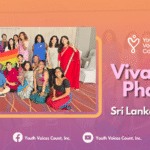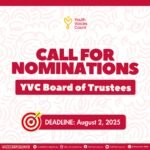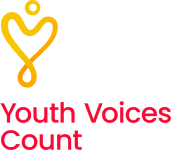All religions advocate for peace, and in particular, place a strong emphasis on compassion. However, the relationship between Buddhism and the LGBTIQ community in Sri Lanka is a topic that requires further discussion and understanding.
The Kaduwela Sri Sankapitti Viharaya hosted an important meeting on October 6th 2023, led by Venerable Karawilakotuwe Dammatilaka Thero in this regard. The gathering included Dhamma school teachers, students, Dhamma Sabha members, and other members of the Sangha. The main theme of the discussion revolved around understanding sexual orientation, gender identity, and expression in the context of Buddhism. I, representing the LGBTIQ youth community, had the opportunity to share my personal experiences, shedding light on the challenges and hardships I faced as a young gay man. One issue that emerged from this discussion was how LGBTIQ youth are often forced to neglect their religious and spiritual aspects due to societal stigma and discrimination and a lack of visibility within Sri Lankan culture.
During the meeting, I shared my life experiences highlighting the struggles that I have faced as a young gay man in Sri Lanka. I emphasized that self-identification posed less of a challenge for me than reconciling my childhood identity. I shared the discomfort I experienced due to discrimination from my family based on my sexual orientation. I stressed the need for awareness and understanding, urging those present to pay attention to the struggles of children like myself and foster a more inclusive and supportive environment for all. They commended my courage in joining this meeting openly as a young gay man and talking about the social status and rights of LGBTIQ individuals. This gathering could be identified as one of the very few instances in Sri Lanka where the religious community engaged in a dialogue with the LGBTIQ community, offering them spiritual support and a sense of belonging within society.
I emphasized the unfortunate reality that Sri Lankan LGBTIQ youth may lose their connection to their religious and cultural heritage, as they often struggle to find a spiritual refuge within their community. I also stressed the importance of maintaining harmony within the relationships between the village, temple, and family, highlighting the significance of this connection for the young LGBTIQ community. Religious institutions and religion or faith are key aspects of growing up, and they contribute to building a sense of belonging. Losing this aspect at a very young age affects a lot of the young LGBTQ community as they struggle to develop their identities as individuals.
Our discussion focused on raising awareness about the challenges faced by LGBTIQ youth within their families and how these issues can subtly permeate from the temple to the family. This awareness aimed to help the temple understand the importance of addressing these matters, granting the Sri Lankan LGBTIQ community the right to practice their religion freely in their homeland, and promoting their spiritual well-being. We underlined the cultural significance of this endeavor and explored the historical context of the LGBTIQ community in Sri Lanka using Robert Knox’s “An Historical Relation of The Island Ceylon.”
The meeting also revealed the need for greater understanding of gender transition and Lord Buddha’s teachings on the Vinaya during his time. The attending clergy recognized Buddhism’s non-violent nature in Sri Lankan culture as a positive example for other religious leaders and suggested the continuation of such dialogues through more temples. It was also proposed that a scientific and religious discourse be initiated in this regard. Measures for enhancing Dhamma education for LGBTIQ youth and creating a violence-free environment in Dhamma schools for transgender youth were also discussed. The meeting concluded with a commitment to taking concrete steps to enhance Dhamma education for the LGBTIQ youth community and to foster a nurturing, violence-free environment within Dhamma schools. The future holds promise and inclusivity as we embark on this historic journey towards understanding, acceptance, and spiritual healing within the Sri Lankan LGBTIQ community.
In the midst of the current political landscape and its intersection with religious ideologies, addressing critical issues within the Dhaham discourse, particularly those pertaining to sexuality and sexual orientations, has become paramount. The dialogue has emphasized the need for a more inclusive Buddhist space and the significance of a pan-religious discourse.
Several key recommendations have emerged from these discussions. Firstly, there is a call for the implementation of awareness programs targeting Dhamma school teachers and collaborations with temples to extend these initiatives to rural communities through the Donor Council of the temples. Additionally, organizing scholarly discourses involving leaders from various religious backgrounds is seen as a vital step.
To ensure a nuanced understanding, it has been proposed to analyze different sexual orientations within the context of local identity and the Buddhist Sinhala culture. Moreover, there is an emphasis on disseminating knowledge to the youth by increasing their representation in these discussions.As a young participant, I am particularly encouraged by the opportunity to contribute ideas, emphasizing the importance of LGBTIQ+ youth representation in fostering meaningful conversations. This engagement aims to pave the way for a more inclusive and enlightened discourse within the Buddhist community.
Heshan Niluminda addressed the audience and expressed his views


Heshan Niluminda addressed the audience and expressed his views

Group of dhamma discussion
If you have any amazing ideas or plans on engaging with us, drop us an email at secretariat@yvc-asiapacific.org ![]()
Count your voice with us! ![]()







